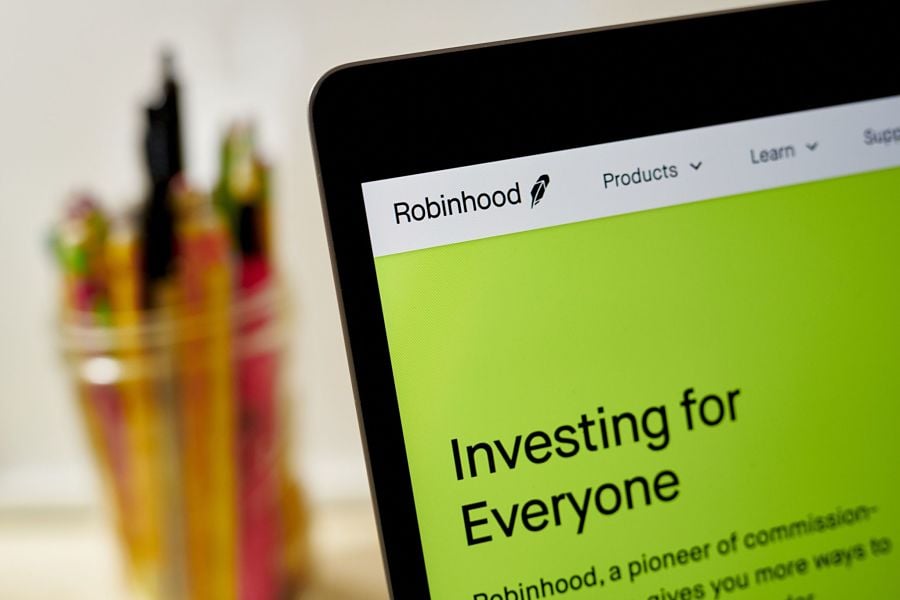

Robinhood Markets Inc., which had sought to go public this month, has seen its listing plans slowed in recent weeks by a back-and-forth with regulators over its prospectus, according to people familiar with the matter.
Robinhood’s growing cryptocurrency business, which was rolled out in 2018 and now allows customers to trade Bitcoin, Ethereum and even Dogecoin, has drawn questions from the Securities and Exchange Commission, one of the people said, asking not to be identified because the matter is private.
While a listing might come this summer, the popular trading app’s plans could also slip into the fall, one of the people said. The company aims to reveal its financials as soon as possible and to go public once the SEC finishes its review, they said.
Robinhood said it filed confidentially for an initial public offering in March. It had been targeting June for its IPO but that plan slipped to July, Bloomberg News has reported.
A representative for Robinhood declined to comment. An SEC spokesperson declined to comment, citing the agency’s policy of not commenting on specific filing reviews.
Robinhood soared in popularity -- and controversy -- during the coronavirus pandemic. With about half of Robinhood users being first time investors, the app can often serve as a path for novices into potentially volatile assets.
Earlier this year, Chief Executive Vlad Tenev was called to testify in front of lawmakers about Robinhood’s role in the frenzied trading of GameStop Corp. stock. He told the House Financial Services Committee in February that the brokerage fell short but will improve from the experience.
Crypto markets, too, have had a particularly wild ride this year. The price of Bitcoin briefly jumped above $64,000 in mid-April, egged on by high-profile advocates like Elon Musk. The rally didn’t last, and Bitcoin dipped below $40,000 in June. The SEC, under new Chairman Gary Gensler, is poised to make a number of critical rulings on the virtual tokens in coming months.
Robinhood’s application comes amid a busy year at the SEC for IPOs including those for special purpose acquisition companies, creating a backlog of equity capital markets work. Agency staff warned lawyers this year that it may take 30 days to review paperwork for SPACs and to expect an additional two weeks to hear back on changes or amendments.
It’s not uncommon for companies to see their listings slip when their paperwork is under review. Coinbase Global Inc. moved its direct listing from March to April while it was awaiting approval.
Robinhood appointed new board members this month. It also announced it would enable customers to buy into IPOs, including its own listing.

The looming threat of federal funding cuts to state and local governments has lawmakers weighing a levy that was phased out in 1981.

The fintech firms' new tools and integrations address pain points in overseeing investment lineups, account monitoring, and more.

Canadian stocks are on a roll in 2025 as the country prepares to name a new Prime Minister.

Carson is expanding one of its relationships in Florida while Lido Advisors adds an $870 million practice in Silicon Valley.

The approval of the pay proposal, which handsomely compensates its CEO and president, bolsters claims that big payouts are a must in the war to retain leadership.
RIAs face rising regulatory pressure in 2025. Forward-looking firms are responding with embedded technology, not more paperwork.
As inheritances are set to reshape client portfolios and next-gen heirs demand digital-first experiences, firms are retooling their wealth tech stacks and succession models in real time.
